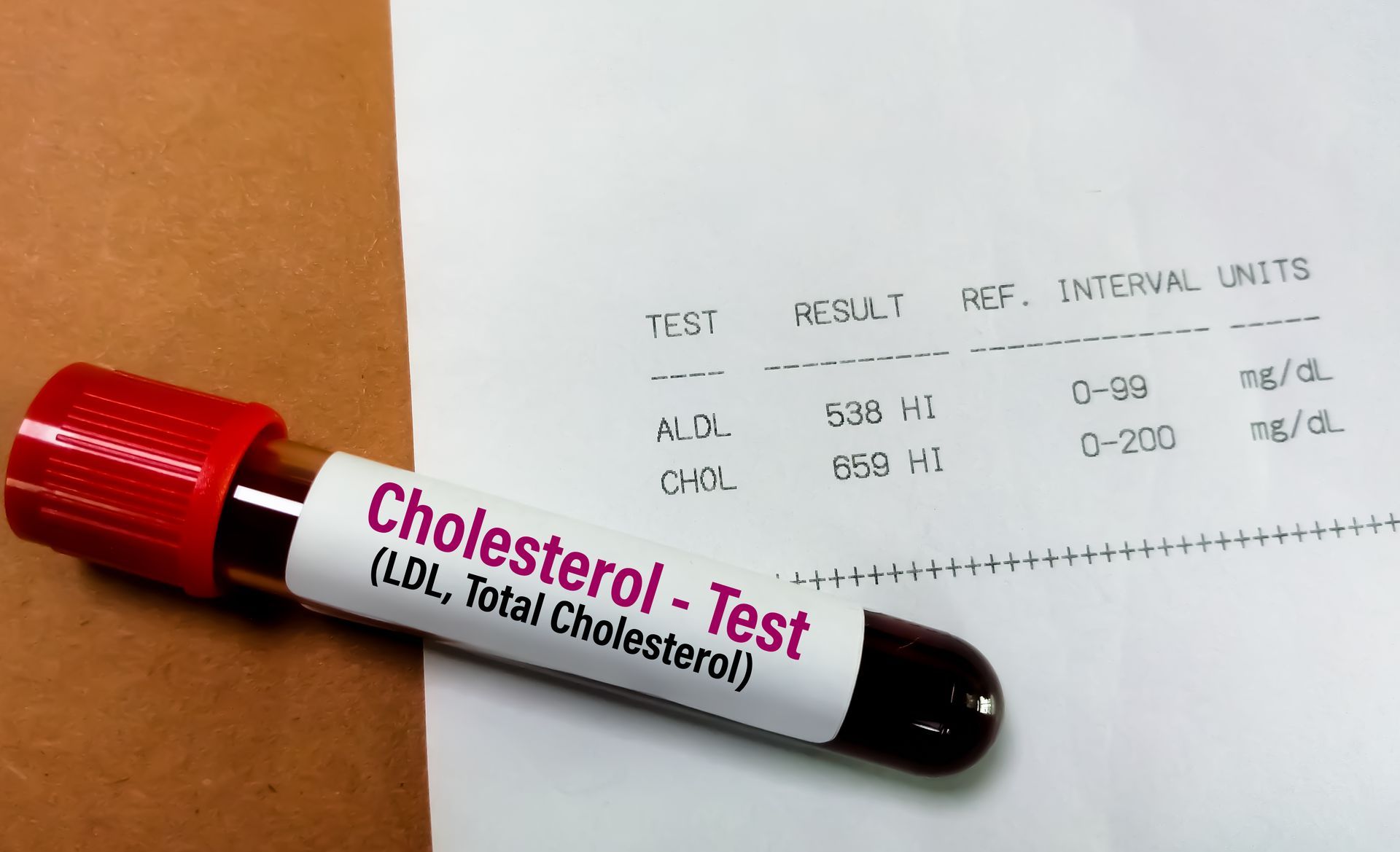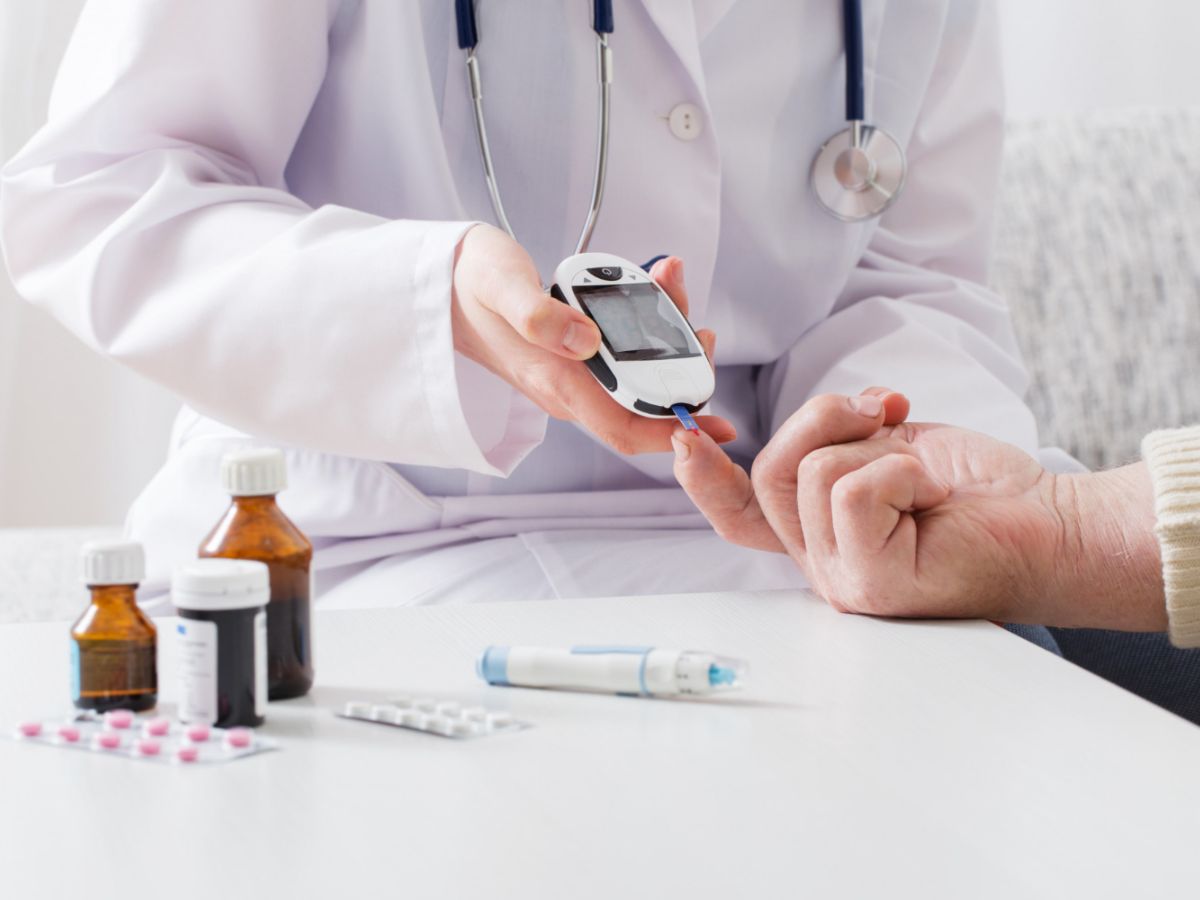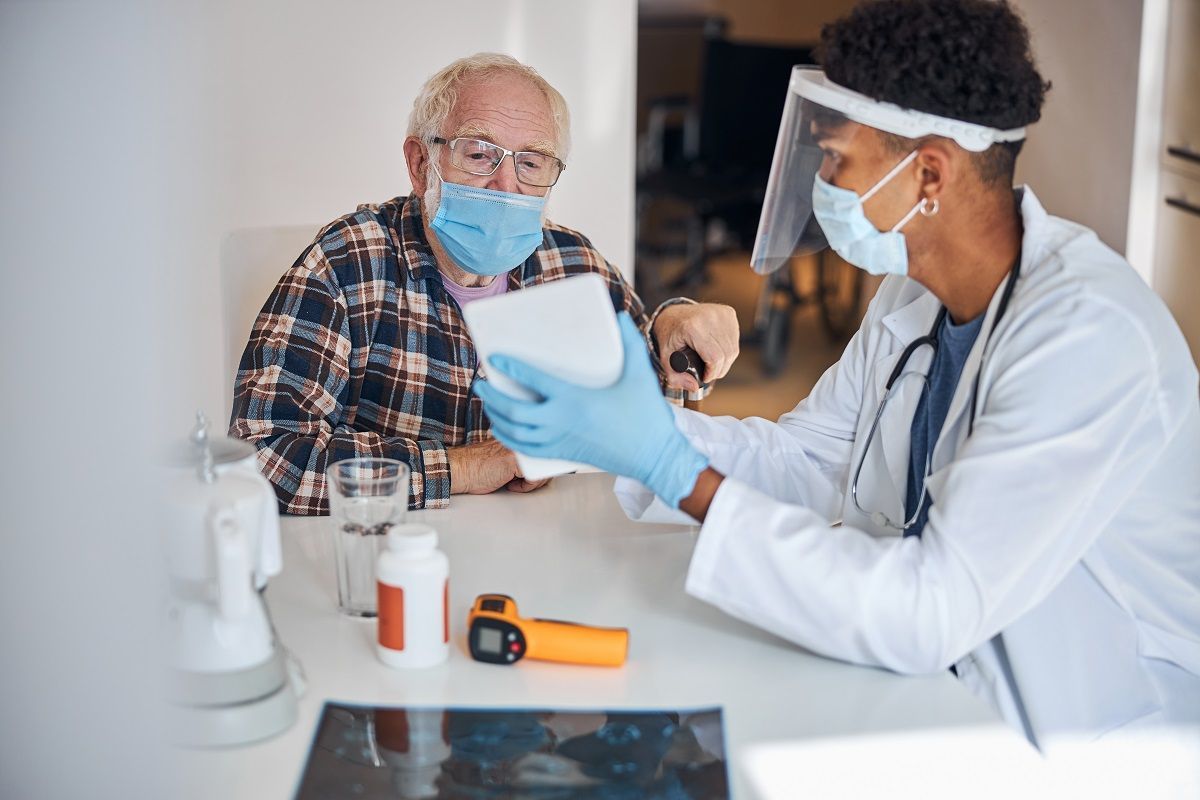Our Location
Elige tu idioma:
Lab Tests for Seniors: Understanding Basic Metabolic Panels (BMPs)
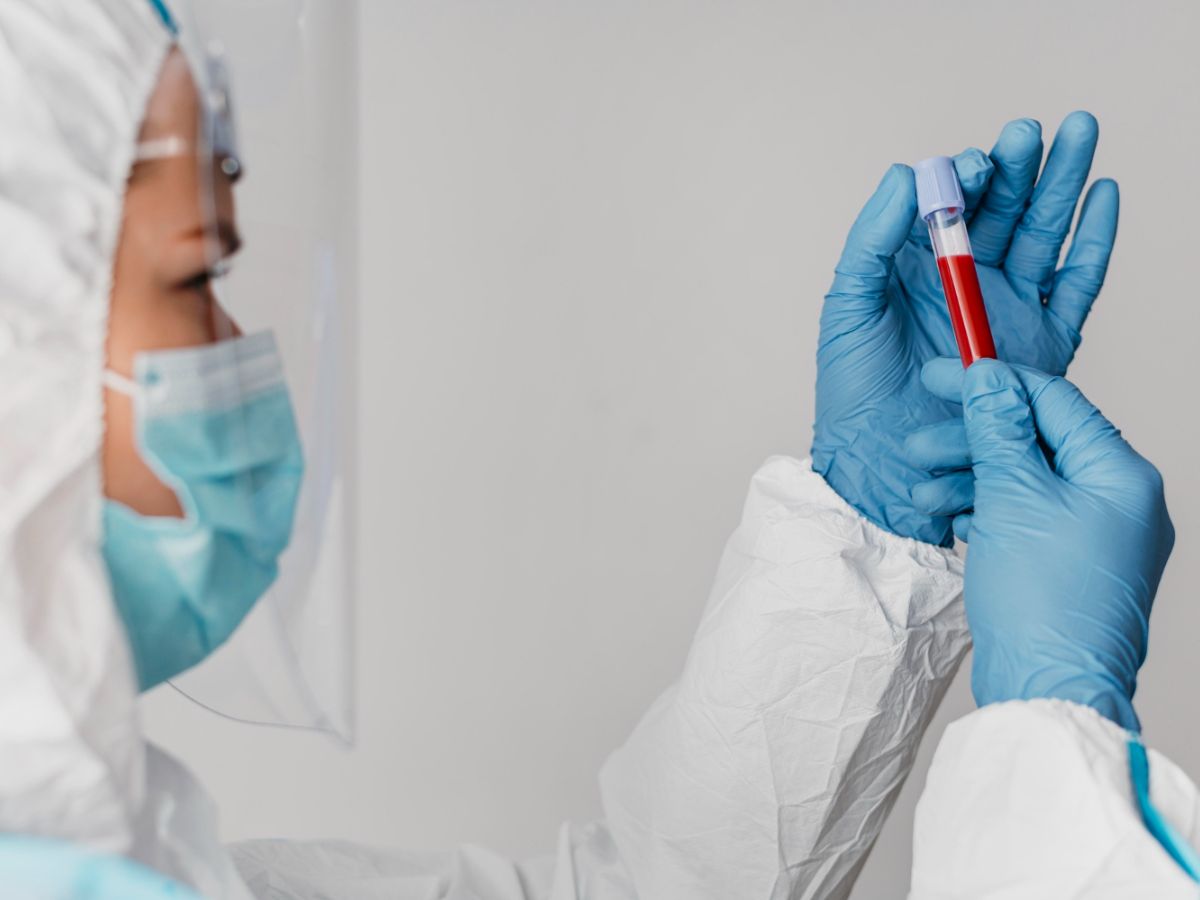
Can't tell what your lab test is for? You're not alone! Many aging individuals make lab appointments without knowing what the tests check them for.
With various blood tests and less time spent discussing their use, it's easy to put blood work on the back burner and miss it—then you get a call from the clinic staff looking for the results of a blood work that has yet to happen.
For proactive senior care, here's a guide on one of the most common routine blood work physicians require: the basic metabolic panel test. Get expert tips on preparing before the test and ensure that you don't have to make any repeat blood draws.
From Our Lab to Your Lifeline
What is a Basic Metabolic Panel (BMP)?
People react differently to their doctors instructing them to get their blood tests. Some express anxiety about needles, and others feel apprehensive about fasting due to the medication that they have to take.
Remember:
Your doctor has your best interest at heart and will only ask for these tests when necessary. Everyone’s go-to approach is requesting more information about the test: a
basic metabolic panel (BMP) provides vital information about your metabolic state—how your body converts glucose into energy.
Eight Measures
Like most tests, a BMP test involves standard blood collection and checks for eight components, including glucose. This point is vital as BMPs that include glucose levels require fasting. If you already have your glucose results from other blood tests, your BMP may no longer need to include glucose levels and fasting for eight hours at least.
Below is the complete list of components measured in a BMP, including the functions or conditions they check for:
1. Glucose measures blood sugar levels, aiding in screening for pre-diabetes and Type 2 diabetes (T2D).
2. Calcium maintains bone health, supports muscle function, and enables nerve signaling.
3. Sodium regulates fluid balance and facilitates nerve and muscle function.
4. Potassium checks for heart function and muscle contractions.
5. Chloride impacts fluid balance and blood pressure.
6. Carbon dioxide helps maintain the acid-base balance in the blood.
7. Blood urea nitrogen (BUN) measures waste in the blood and indicates kidney function.
8. Creatinine is another marker for assessing kidney function.
Still find lab tests daunting?
Under the expertise of Dr. Antonio L. Ocana, you won't have to go through all the confusion. He and his team will explain everything you need to know about the prescribed tests and take the time to listen to your concerns, whether you have a medical condition or take medications or supplements that could be affected by fasting.
Additionally, Ocana Medical Center has an on-site lab fully licensed by the Florida Department of Public Health.
Schedule a BMP blood test today and benefit from the convenience of having routine blood work at the point of care!
Why BMPs are Important for Seniors
Based on the functions measured in a metabolic blood panel, the test helps physicians screen people for conditions affecting kidney function, blood pressure (hypertension), and glucose levels (diabetes).
More specifically, BMPs are effective for detecting early signs of these conditions:
- Type 2 diabetes: The blood panel test may reveal abnormal glucose levels, indicating T2D or insulin resistance. If detected early, your physician can offer timely interventions to prevent complications such as neuropathy and retinopathy.
- Hypertension: Electrolytes like sodium, potassium, and chloride regulate the body's fluid balance. Any disruption in their levels can lead to dehydration, fluid overload, or hypertension.
- Kidney function: Both diabetes and high blood pressure can impact kidney function. Regular monitoring with BMPs not only helps detect any significant changes early but also provides hope in managing conditions like diabetic nephropathy (diabetic kidney disease).
When Should Seniors Get a BMP?
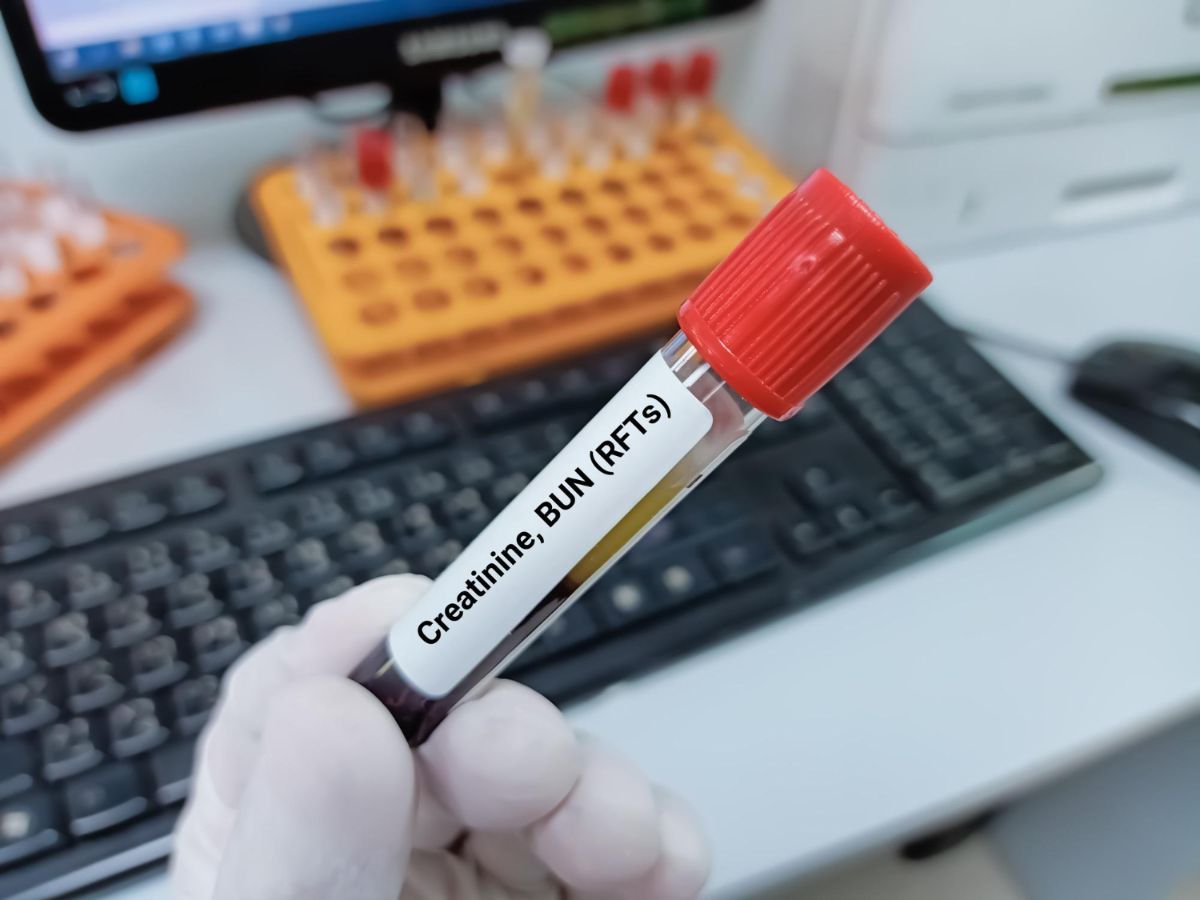
The test results help your doctors adjust your medication and treatment plan more effectively. Just as a weather forecast helps you plot your daily schedule, BMP tests inform your providers what needs to change in your care approach.
The metabolic assessment can guide you in making lifestyle changes that will facilitate better chronic care management, reverse the onset of new symptoms, or
detect an illness in its early stages.
Below are some scenarios on how often you must take BMP testing:
- New symptoms: Your doctor may request a metabolic panel to assess your condition, regardless of the last test performed.
- Medication monitoring: If you have a chronic condition, you will likely require more frequent testing. These BMP results will help adjust treatments or medication dosage.
- Routine check-ups: If you don't have any new symptoms, your physician will likely require annual BMP testing to detect issues early.
Preparing for a BMP Test

A metabolic panel shares some similarities with other routine blood tests, which can confuse patients. You can take control of your healthcare journey by asking follow-up questions about glucose levels (requires fasting), medications or supplements that could affect fasting, or lab results.
Remember to inquire about the minimum and maximum fasting hours. Check with your physician if food is prohibited but drinking is allowed. Finally, ask what happens if you miss a fasting requirement. Write them down or record them in a recording device (with the staff's permission) so you can check back.
What to Expect During the Test
A phlebotomist, physician, or nurse trained in performing blood draws can conduct the BMP for you.
- The healthcare professional will check if you meet fasting requirements. Some clinics will verify the lab order the physician gave you.
- They will ask you to sit and tie a band around your upper arm to view the veins easily. Wear loose-fitting clothes (especially the sleeve part) so the phlebotomist or nurse can easily make the tourniquet and draw the blood into a tube.
- The healthcare professional will apply a disinfectant or advise you to use a bandage or cotton to the puncture site. Also, ask when the BMP results are ready, if you have to get them, or if they will send them to your physician.
Stay on Top of Your Health with Convenient Lab Visits
A vial of blood can dispel significant uncertainties associated with health conditions that seniors face. Taking the time for regular metabolic blood work, asking your physician follow-up questions, and preparing for the tests can impact your consultation time.
Proudly recognized by NCQA and the American Diabetes Association, Ocana Medical Center offers stress-free BMP testing with a focus on personalized health. Contact us at (813) 968-8314 to book an appointment or inquire about fasting requirements.
Located in Tampa, FL, Ocana Medical is committed to providing complete health information to keep you in the best shape possible. We're in this together. #ocanacares
Tampa Seniors—Reclaim Your Health!
“Respect. Compassion. Quality. Integrity. These are the values on which Ocana Medical Center was built. Our aim isn’t just to treat you today. We hope to earn your trust and be your healthcare provider for life.”
©2023 Ocana Medical Group, Inc.
USEFUL LINKS
GET IN TOUCH
Call Us Today
Send us Email
Our Location
Ocana Medical Center | All Rights Reserved.



